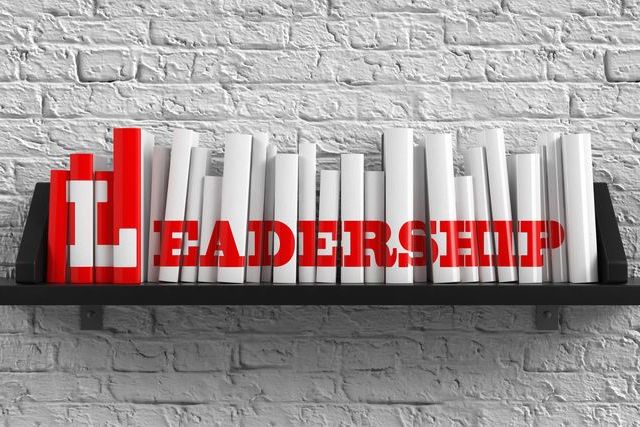
Compare Providers
Download our outplacement comparison sheet
Request Pricing
Compare our rates to other providers
Leaders of all types and levels understand the importance of professional and personal development, both early and ongoing throughout a leadership career. This commitment to learning is crucial to being a truly effective leader, both for yourself and your organization.
The good news is there are plenty of great management and leadership books out there that can help you do just that. Of course, a quick search for “leadership books” is bound to yield an overwhelming number of options, making it tough to know where to start and which leadership books are right for you. So we’ve made it easier for you by identifying and summarizing the best leadership books for various roles and goals.
In this article, we will review the top 10 best leadership books of all time that can help develop leaders of all kinds in all industries and organizations, as well as the best leadership books for new leaders, corporate leaders, HR leaders, and leaders seeking personal growth and development.
What Are the Top 10 Business Leadership Books of All Time?
Let’s start by reviewing the top 10 best leadership books of all time that all leaders, whether new and veteran, can benefit from reading. This isn’t just a list of the top 10 best-selling leadership books, though some of those are on this list because they are both top selling and top quality advice.
1. Start with Why: How Great Leaders Inspire Everyone to Take Action
Our first top leadership book is one that is captivating millions and served as the basis for one of the most popular TED Talks of all time. Over a decade ago, Simon Sinek started a movement that inspired millions to demand purpose at work and ask about the “why” of their organization. This book asks (and answers) the questions: Why are some people and organizations more innovative, more influential, and more profitable than others? Why do some command greater loyalty from customers and employees alike? Even among the successful, why are so few able to repeat their success over and over?
Some of the world’s most impactful people like Martin Luther King Jr., Steve Jobs, and the Wright Brothers all realized the same thing: that people won’t truly buy into a product, service, movement, or idea until they understand the “why” behind it. This book illustrates how the leaders with the greatest influence in the world all think, act, and communicate this same way. Sinek calls this powerful idea “The Golden Circle,” and it provides a framework upon which organizations can be built, movements can be led, and people can be inspired. It all starts with “why.”
2. Dare to Lead: Brave Work. Tough Conversations. Whole Hearts.
Our next top leadership book is based around the idea that leadership is not about title, status, and wielding power. A leader is anyone who takes responsibility for recognizing the potential in people and ideas, and has the courage to develop that potential. When we dare to lead, we don’t pretend to have the right answers; we stay curious and ask the right questions. We don’t see power as finite and hoard it; we know that power becomes infinite when we share it with others. We don’t avoid difficult conversations and situations; we lean into vulnerability when it’s necessary to do good work.
Daring leadership in a culture defined by scarcity, fear, and uncertainty requires skill-building around traits that are deeply and uniquely human. Four-time #1 New York Times bestselling author Brené Brown has spent over two decades studying the emotions and experiences that give meaning to our lives, and the past seven years working with transformative leaders and teams spanning the globe. This book provides her answer for how we can dare to lead more courageously, compassionately, and effectively.
This top leadership book may relate to a seemingly niche and irrelevant situation, but the powerful lessons it yields translate to leaders in all fields and environments. Sent to the most violent battlefield in Iraq, Jocko Willink and Leif Babin’s SEAL task unit faced a seemingly impossible mission: help U.S. forces secure Ramadi, a city deemed “all but lost.” In gripping firsthand accounts of heroism, tragic loss, and hard-won victories in SEAL Team Three’s Task Unit Bruiser, they learned that leadership at every level is the most important factor in whether a team succeeds or fails.
Willink and Babin returned home from deployment and instituted SEAL leadership training that helped forge the next generation of SEAL leaders, and then launched Echelon Front, a company that teaches these leadership principles to businesses and organizations. This book encapsulates the lessons Willink and Babin have shared with clients across a broad range of industries to help them build high-performance teams and dominate their own battlefields. With a compelling narrative, powerful instruction, and direct application, Extreme Ownership revolutionizes business management and challenges leaders everywhere to fulfill their ultimate purpose: lead and win.
4. The 48 Laws of Power
In this top leadership book, Robert Greene and Joost Elffers have distilled three thousand years of the history of power into 48 essential laws by drawing from the philosophies of Machiavelli, Sun Tzu, and Carl Von Clausewitz and also from the lives of figures ranging from Henry Kissinger to P.T. Barnum.
Some laws teach the need for prudence (e.g., “Law 1: Never Outshine the Master”), others teach the value of confidence (e.g., “Law 28: Enter Action with Boldness”), and many recommend absolute self-preservation (e.g., “Law 15: Crush Your Enemy Totally”). Yet every law has one thing in common: an interest in total domination. The 48 Laws of Power is a great leadership book to read whether your aim is conquest, self-defense, or simply to understand the rules of the game.
5. How to Win Friends and Influence People
This top leadership book packed with Dale Carnegie’s advice on how to succeed in business and life has been a bestseller for many years, impacting millions of people since it was first published in 1936. Despite being written in the 1930s, Dale Carnegie’s timeless principles in this book still endure in today’s modern world. His lessons include the six ways to make people like you, the twelve ways to win people to your way of thinking, and the nine ways to change people without arousing resentment. This advice has carried thousands of people up the ladder of success in their professional and personal lives, making this book a great read to help you achieve your maximum potential in the complex and competitive modern age.
6. Crucial Conversations: Tools for Talking When Stakes Are High
One of the best leadership books of all time is Crucial Conversations, a collective effort by international leadership consultants Kerry Patterson, Joseph Grenny, Ron McMillan, and Al Switzler. The first edition exploded onto the scene in 2002, revolutionizing the way millions of people communicate when stakes are high. This includes learning skills such as how to prepare for high-stakes situations, how to transform anger and hurt feelings into powerful dialogue, how to create safe spaces to talk about almost anything, and how to be persuasive without being abrasive. This is an essential book for any and all leaders looking to develop their communication skills in every aspect of their work and life.
7. How to Be an Antiracist
Ibram Kendi’s book on antiracism is another important and transformative read that reorients and re-energizes the conversation about racism and provides liberating new ways of thinking about ourselves and each other. At its core, racism is a powerful system that creates false hierarchies of human value, from the way we regard people of different ethnicities or skin colors to the way we treat people of different sexes, gender identities, and body types. Racism intersects with class, culture, and geography, and even changes the way we see and value ourselves, all of which can have a profoundly negative impact on the health of an organization and its people.
In this book, Kendi weaves ethics, history, law, and science with his own personal story to take readers through a widening circle of antiracist ideas–from the most basic concepts to visionary possibilities–to help readers see all forms of racism clearly, understand their consequences, and work to oppose them in our systems and in ourselves. This is an essential read for anyone who wants to go beyond the awareness of racism to the next step: contributing to the formation of a just and equitable society in their personal and professional lives.
8. The Hard Thing About Hard Things: Building a Business When There Are No Easy Answers
This top leadership book by Ben Horowitz, cofounder of Andreessen Horowitz and one of Silicon Valley’s most respected and experienced entrepreneurs, offers essential advice on building and running a business, including practical wisdom for managing the toughest problems that business school doesn’t cover.
Filled with his trademark humor and straight talk, Horowitz analyzes the problems that confront leaders every day, sharing the insights he’s gained from developing, managing, selling, buying, investing in, and supervising technology companies. This book is invaluable for veteran leaders and entrepreneurs, as well as those aspiring to lead their own ventures, drawing from Horowitz’s personal and often humbling experiences.
9. The Lean Startup: How Today’s Entrepreneurs Use Continuous Innovation to Create Radically Successful Businesses
In this top leadership book, Eric Ries aims to answer a simple question: why do so many startups fail? In his mind, this can be avoided if startups move to a leaner approach that takes creativity more into account, while also trying to cut the fat that can come with a rapidly growing business.
Ries’ ultimate advice is that startup leaders should continuously adapt their processes, allowing them to make real-time changes instead of focusing on other tasks that can take away from the core goal. This book is geared towards entrepreneurs building a new startup, but its core lessons are applicable and valuable to leaders across all levels and sizes of business.
10. Moneyball: The Art of Winning an Unfair Game
In this famous leadership book that inspired the hit motion picture, Michael Lewis follows the low-budget Oakland Athletics baseball team, visionary general manager Billy Beane, and the strange brotherhood of amateur baseball theorists. They are all in search of new baseball knowledge–insights that will give the little guy who is willing to discard old wisdom the edge over big money. This book tells the quest for the secret of success in baseball, but its insights and stories also prove a powerful guide for leaders in any industry looking for innovative and unconventional ways to lead in the modern, competitive landscape.
What Are the Best Leadership Books for New Leaders?
Becoming a new leader or people manager can seem daunting and intimidating, especially if there hasn’t been sufficient succession planning to give you time to prepare for your new role. So it’s important for all new leaders to put in the work on developing the essential leadership skills, even well after stepping into their new leadership role.
Below is a quick list of the six best leadership books for new leaders, as well as those aspiring for or succeeding into leadership roles in the near future.
1. Leaders Eat Last: Why Some Teams Pull Together and Others Don’t
This great leadership book, also written by Simon Sinek, captures his work with organizations around the world and his advice on how leaders can establish a culture of trust and create environments in which people naturally work together to do remarkable things.
2. Radical Candor: Be a Kickass Boss Without Losing Your Humanity
Radical Candor by Kim Malone Scott is a simple framework for leaders to be both caring and challenging at the same time, enabling them to create a culture of feedback (praise and criticism), build a cohesive team, and achieve results you’re all proud of.
3. The 21 Irrefutable Laws of Leadership: Follow Them and People Will Follow You
This solid leadership book by internationally-recognized leadership expert and bestselling author John C. Maxwell is one of the most widely trusted and referenced leadership books that is fundamental to any leader. The result is a revealing study of leadership delivered as only a communicator like Maxwell can. Follow these laws of leadership and people will follow you.
4. The Coaching Habit: Say Less, Ask More & Change the Way You Lead Forever
Drawing on years of experience training more than 10,000 busy managers from around the globe in practical, everyday coaching skills, Bungay Stanier reveals how to unlock your peoples’ potential. He unpacks seven essential coaching questions to demonstrate how, by saying less and asking more, you can develop coaching methods that produce great results.
5. Quiet: The Power of Introverts in a World That Can’t Stop Talking
In this powerful leadership book, Susan Cain argues that we dramatically undervalue introverts and shows how much we lose in doing so. She shows the rise of the Extrovert Ideal throughout the twentieth century and how deeply it has permeated our culture, as well as the undervalued potential of introverts through real success stories. This is a great book for introverts who are promoted to a leadership role, as well as managers who have introverts on their team who they need help learning how to lead.
6. Primal Leadership: Unleashing the Power of Emotional Intelligence
This great leadership book by Daniel Goleman, Richard Boyatzis, and Annie McKee affirms the importance of emotionally intelligent leadership, vividly illustrating the power and the necessity of leaders who are self-aware, empathic, motivating, and collaborative in a world that is ever more economically volatile and technologically complex. This groundbreaking book remains a must-read for anyone who leads or aspires to lead.
What Are the Best Books to Read for Corporate Leadership?
Corporate leaders, especially those in senior leadership and executive positions, face additional challenges around striking a balance between doing what’s best for the employees and what’s best for the business strategy and bottom line. This requires developing skills such as strategic analysis, corporate communication, and dispersed team management.
Below is our list of the five best books on leadership and management in a corporate environment.
1. Good to Great: Why Some Companies Make the Leap… and Others Don’t
How do companies go from good to great? This is the fundamental question driving James C. Collins through his heavily-researched book. This is a great read for those that want to understand the forces behind successful companies in a way that takes data and the scientific method into account instead of just anecdotal evidence and catchy business phrases.
2. The Five Dysfunctions of a Team: A Leadership Fable
Patrick Lencioni’s book has been engaging audiences since 2002 with a page-turning, realistic fable that follows the travails of new DecisionTech CEO Kathryn Petersen as she faces the ultimate leadership crisis. She must unite a team in such disarray that it threatens to derail the entire company. Equal parts leadership fable and business handbook, this definitive source on teamwork reveals the five behavioral tendencies at the heart of why even the best teams struggle, with a powerful model and step-by-step guide for overcoming those dysfunctions and getting everyone rowing in the same direction.
3. Conscious Business
This leadership book is the definitive resource for achieving what really matters in the workplace and beyond. Conscious business, explains author Fred Kofman, means finding your passion and expressing your essential values through your work. A conscious business seeks to promote the intelligent pursuit of happiness in all its stakeholders. It produces sustainable, exceptional performance through the solidarity of its community and the dignity of each member.
4. The No Asshole Rule: Building a Civilized Workplace and Surviving One That Isn’t
In this groundbreaking book, Stanford University professor Robert I. Sutton builds on his acclaimed Harvard Business Review article to show you the best ways to deal with assholes and why they can be so destructive to your company. This book is practical, compassionate, and in places downright funny, making it an excellent read for leaders navigating the complex dynamics, personalities, and etiquette in a corporate work environment.
5. It’s the Manager: Moving From Boss to Coach
Packed with 52 discoveries from Gallup’s largest study on the future of work, this book by Gallup CEO Jim Clifton shows leaders how to adapt their organizations to rapid change, ranging from new workplace demands to managing remote employees, a diverse workforce, the rise of artificial intelligence, gig workers, and attracting and retaining today’s best employees. Who is the most important person in your organization to lead your teams through these changes? Gallup research reveals: It’s your managers. This is the future of work.
What Are the Best Leadership Books for HR Leaders?
Human resources and organizational leaders face the tough task of designing leadership practices and policies for an entire organization, making the scope larger and the stakes higher. So it’s important for these leaders to understand and develop leadership skills helpful for this level, including culture-building, group communication and morale, employee engagement, psychological safety, diversity, and inclusion.
Below is our list of the six best leadership books for HR leaders to read to develop their organizational leadership skills.
1. The 5 Languages of Appreciation in the Workplace: Empowering Organizations by Encouraging People
This book by Gary Chapman and Paul White gives organizational leaders the tools to improve staff morale, create a more positive workplace, and increase employee engagement by teaching how to effectively communicate authentic appreciation and encouragement to employees, co-workers, and leaders. Most relational problems in organizations flow from this question: do people feel appreciated? This book will help you answer “Yes!”
2. Who
In this instant New York Times Bestseller, Geoff Smart and Randy Street provide a simple, practical, and effective solution to what The Economist calls “the single biggest problem in business today”: unsuccessful hiring. The average hiring mistake costs a company $1.5 million or more a year and countless wasted hours. This statistic becomes even more startling when you consider that the typical hiring success rate of managers is only 50 percent. This book shows how these “who” problems are easily preventable with the A Method, refined through the largest research study of its kind ever undertaken, which stresses fundamental elements that anyone can implement.
3. The Fearless Organization: Creating Psychological Safety in the Workplace for Learning, Innovation, and Growth
This great leadership book by Amy C. Edmondson offers practical guidance for organizations and leaders who are serious about success in the modern economy. This success requires a continuous influx of new ideas, new challenges, and critical thought, and the interpersonal climate must not suppress, silence, ridicule or intimidate. People must be allowed to voice half-finished thoughts, ask questions from left field, and brainstorm out loud. Talking through these things is an essential part of the creative process. It creates a culture in which a minor flub or momentary lapse is no big deal, actual mistakes are owned and corrected, and the next left-field idea could be the next big success.
4. Tribal Leadership: Leveraging Natural Groups to Build a Thriving Organization
In this book, authors Dave Logan, John King, and Halee Fischer-Wright demonstrate how every organization is composed of tribes and naturally occurring groups of between 20 and 150 people. Until now, only a few leaders could identify and develop their tribes, and those rare individuals were rewarded with loyalty, productivity, and industry-changing innovation.
Tribal Leadership shows leaders how to assess, identify, and upgrade these tribes in their organization and lead them to maximize productivity and growth. This is a business management book like no other, helping business leaders take better control of their organizations by utilizing the unique characteristics of the tribes that exist within.
5. Carrots and Sticks Don’t Work: Build a Culture of Employee Engagement with the Principles of RESPECT
According to this book, when it comes to changing your organizational culture, the carrots and stick approach doesn’t work. Dr. Paul Marciano’s acclaimed RESPECT model provides specific, low-cost, turnkey solutions and action plans based on seven key drivers of employee engagement–proven and supported by decades of research and practice–that will empower you to assess, troubleshoot, and resolve engagement issues in the workplace. This book is a go-to employee engagement guide for every HR professional.
6. The Inclusion Dividend: Why Investing in Diversity & Inclusion Pays Off
This book by Mason Donovan and Mark Kaplan provides a framework to tap into the bottom line impact that results from an inclusive culture. Most leaders have the intent to be inclusive, but translating that into true inclusion for employees, customers, and other stakeholders requires a focused change effort. This book provides straightforward advice on how to achieve the kind of meritocracy that will result in a tangible dividend and move companies ahead of the competition.
What Are the Best Leadership Books for Personal Development?
People management and leadership should always be accompanied by personal development. The best leaders are equally as focused on working on themselves and their own personal growth. You first need to be able to manage yourself if you want to effectively manage others. This includes developing your self-awareness, emotional intelligence and regulation, communication and negotiation, and mindset.
There are an especially large number of excellent books that can help you develop these valuable personal skills. So we’ve narrowed our list down to the top 10 best leadership books to read if you want to work on developing these skills for your own personal growth journey.
1. The Gifts of Imperfection: Let Go of Who You Think You’re Supposed to Be and Embrace Who You Are
This is another great book by Brené Brown where she shares what she’s learned from a decade of research on the power of what she calls “Wholehearted Living,” or a way of engaging with the world from a place of worthiness.
2. The 7 Habits of Highly Effective People: Powerful Lessons in Personal Change
In this highly-acclaimed bestselling book, author Stephen R. Covey presents a holistic, integrated, principle-centered approach for solving personal and professional problems. With penetrating insights and pointed anecdotes, Covey reveals a step-by-step pathway for living with fairness, integrity, service, and human dignity. These principles give us the security to adapt to change and the wisdom and power to take advantage of the opportunities that change creates.
3. Man’s Search for Meaning
In this seminal book, Victor Frankl’s riveting account of his time in the Nazi concentration camps, and his insightful exploration of the human will to find meaning in spite of the worst adversity, has offered solace and guidance to generations of readers since it was first published in 1946. At the heart of Frankl’s theory of logotherapy (from the Greek word for “meaning”) is a conviction that the primary human drive is not pleasure, as Freud maintained, but rather the discovery and pursuit of what the individual finds meaningful. Today, as new generations face new challenges and an ever more complex and uncertain world, Frankl’s classic work continues to offer inspiration for finding significance in the very act of living, in spite of all obstacles.
4. The Untethered Soul: The Journey Beyond Yourself
By tapping into traditions of meditation and mindfulness, author and spiritual teacher Michael A. Singer shows how the development of consciousness can enable us all to dwell in the present moment and let go of painful thoughts and memories that keep us from achieving happiness and self-realization. Co-published with the Institute of Noetic Sciences (IONS), this book offers simple yet profound ways you can put an end to the habitual thoughts and emotions that limit your consciousness. Whether this is your first exploration of inner space, or you’ve devoted your life to the inward journey, this book will transform your relationship with yourself and the world around you.
5. Lean In: Women, Work, and the Will to Lead
Expanding on her famed TED talk, former Facebook COO Sheryl Sandberg describes how women unintentionally hold themselves back in their careers, combining personal anecdotes, hard data, and compelling research to change the conversation from what women can’t do to what they can. She provides practical advice on negotiation techniques, mentorship, and building a satisfying career to combine professional achievement with personal fulfillment.
6. Drive: The Surprising Truth About What Motivates Us
This New York Times bestseller by Daniel H. Pink gives readers a paradigm-shattering new way to think about motivation. Drawing on four decades of scientific research on human motivation, Pink asserts that the secret to high performance and satisfaction–at work, school, and home–is the deeply human need to direct our own lives, to learn and create new things, and to do better by ourselves and our world. He examines the three elements of true motivation–autonomy, mastery, and purpose–and offers smart, surprising techniques for putting these into action in a unique book that will transform how you think, live, and lead.
7. Getting to Yes: Negotiating Agreement Without Giving In
This book by Roger Fisher and William Ury offers a proven, step-by-step strategy for coming to mutually acceptable agreements in every sort of conflict. Thoroughly updated and revised, it offers readers a straight-forward, universally applicable method for negotiating personal and professional disputes without getting angry or getting taken.
8. The Art of Possibility: Transforming Professional and Personal Life
Rosamund Stone Zander and Benjamin Zander present 12 breakthrough practices for bringing creativity into all human endeavors, combining Boston Philharmonic conductor Benjamin Zander’s experience and talent as a teacher and communicator with psychotherapist Rosamund Stone Zander’s genius for designing innovative paradigms for personal and professional fulfillment. Through uplifting stories, parables, and personal anecdotes, the Zanders invite us to become passionate communicators, leaders, and performers whose lives radiate possibility into the world.
9. The Power of Meaning: Crafting a Life That Matters
To explore how we can craft lives of meaning, author Emily Esfahani Smith synthesizes a kaleidoscopic array of sources–from psychologists, sociologists, philosophers, and neuroscientists to figures in literature and history such as George Eliot, Viktor Frankl, Aristotle, and the Buddha. Drawing on this research, Smith shows us how cultivating connections to others, identifying and working toward a purpose, telling stories about our place in the world, and seeking out mystery can immeasurably deepen our lives.
10. The Person You Mean to Be: How Good People Fight Bias
In this book, author Dolly Chugh reveals the surprising causes of inequality, grounded in the “psychology of good people.” Using her research in unconscious bias, as well as work across psychology, sociology, economics, political science, and other disciplines, she offers practical tools to respectfully and effectively talk politics with family, to be a better colleague to people who don’t look like you, and to avoid being a well-intentioned barrier to equality. Being the person we mean to be starts with a look at ourselves.
Leadership Books: Final Takeaways
Whether you’re a new leader, a veteran executive, or an HR leader overseeing an entire organization, a commitment to learning is essential to ensuring you can be as effective and fulfilled a leader as possible. The best leadership books we reviewed above can help you achieve this professional and personal growth, benefitting both you and your organization.
These books are a great place to start if you are a new people manager, a corporate executive, an HR leader, or really anyone looking to grow their leadership skills. But simply reading is not enough. Then you must put what you learn into action to see any improvement. Here at Careerminds, we offer leadership development programs to help guide you through this process and unlock the full potential of your leadership.
Ready to take the next step and find the best leadership development program for your organization? Click below to speak to one of our experts and learn how our Careerminds programs can help your leadership unlock their full potential.
In need of outplacement assistance?
At Careerminds, we care about people first. That’s why we offer personalized talent management solutions for every level at lower costs, globally.



